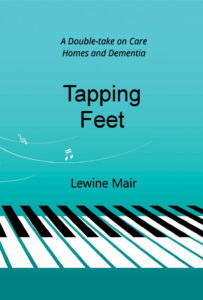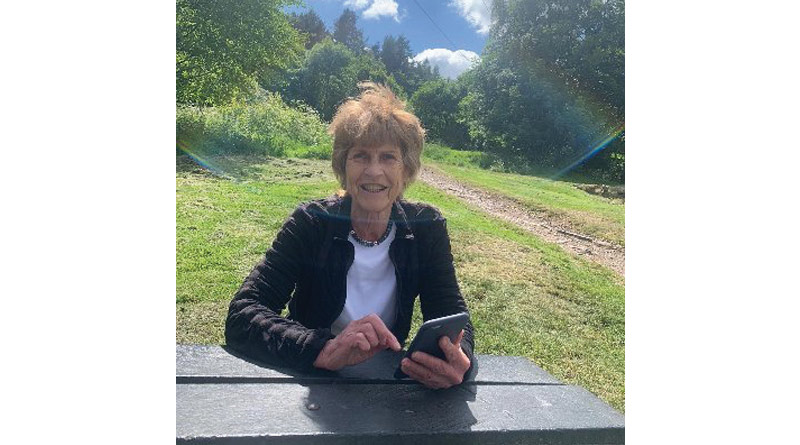How Carers Care
 By Lewine Mair, author of ‘Tapping Feet: A Double-take on Care Homes and Dementia’.
By Lewine Mair, author of ‘Tapping Feet: A Double-take on Care Homes and Dementia’.
In last week’s editorial in The Carer, Peter Adams mentioned that the government had probably taken the care sector’s goodwill for granted for too long.
Haven’t we all? People assume that carers love what they do and that they wouldn’t be doing it if that were not the case. Yet whether or not we are sufficiently appreciative of their often-underpaid efforts is another matter.
It was some months after my husband, Norman, went into his home — I called it Farrow Hall for the purposes of my book — that I had a rude awakening about how dependent such places are on the caring community. And how uneducated I was when it came to their everyday ‘to do’ lists.
On a morning when I had made a casual comment to Alphonso, the head nurse, about the residents looking particularly smart, he gave a bemused smile at my seeming assumption that everything had fallen into place automatically.
“Mrs Mair,” he said, “do you have any idea how long it takes to get them dressed in the mornings?”
I did not. The nearest experience on which I could draw revolved around my husband’s exploits in the months before he went into the home. He would get up three or four times in the middle of the night and ask for anything from his golf clubs to a gun. (There was no gun.)
Alphonso said that there were days when residents who had been woken at six o’clock would still be getting dressed several hours later. By way of an example, he added that if a carer who was helping someone to put on his shoes disappeared for a second to check on a resident in the next-door room, he could return to find that the first individual was back in his pyjamas and tucked up in bed. Norman, by all accounts, was a prime example of someone who could make for chaos. Given half a chance, he would trawl through his neighbours’ sock and sweater drawers before deciding what he wanted for himself.
It was through playing the piano in Farrow Hall — by ear rather than reading a concentration of notes — that I was able to take in rather more about all the very different roles involved in the smooth running of the place.
Most of the dementia and Alzheimers’ patients reacted to tunes from the musicals, (hence the book’s ‘Tapping Feet’ title), while all the residents were guaranteed to perk up with the clattering of the coffee trolley and the arrival of one more friendly member of staff.
Meanwhile, when it came to the visitors, there was a collective fondness for the man who, when he came to see his mother, would greet each resident in turn on the way to his mother’s seat. (He even knew their names.) Along much the same lines, there was a gentleman who would never fail to pull up another chair for his wife’s friend, a woman who seldom had any visitors of her own. The way those visitors contributed to the overall mood was a lesson in itself.
On to the staff. Doctors, nurses, cooks and carers seemed to work as a team, and I doubt I ever saw a congregation of carers standing in a corner and complaining about their lot. One of them had a story to tell which spoke volumes for the care home sector overall.
Before coming to work at Farrow Hall, she had held a senior post in a famous Edinburgh department store where, not long before she left, she had won herself a luxury holiday for two in the Bahamas for a clever idea for the shop’s latest venture into on-line shopping.
The company had offered her promotion as well, but she had turned it down on the grounds that she needed a bit of a change.
Why? Because she had always wanted to work in a care home. I do not know whether she would have left her previous job at five o’clock on the dot but, at Farrow Hall, this smiling soul was very obviously a resident-watcher rather than a clock-watcher.
Lewine Mair is an acclaimed sportswriter and author. Her new book Tapping Feet: A Double-take on Care Homes and Dementia is out now, with a third of profits from each sale going to the Head for Change Charity.

